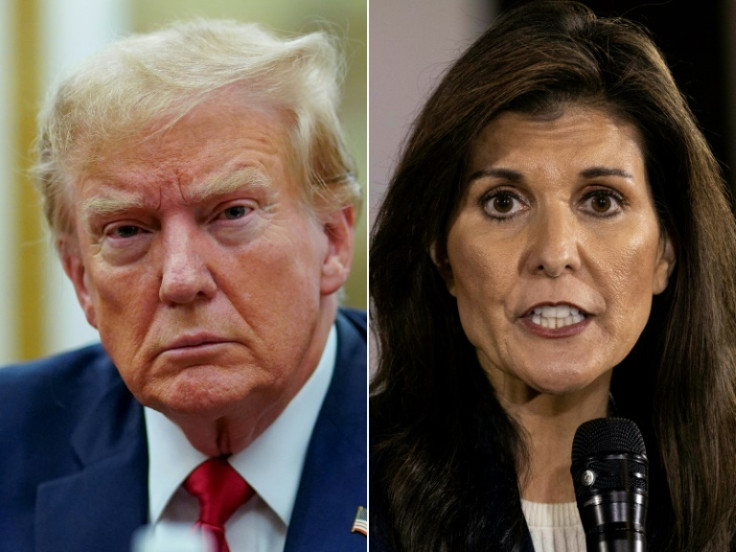
Is it political strategy, donor pressure or perhaps hubris? Nikki Haley is vowing "the fight goes on" against Donald Trump, positioning herself as a viable option for the Republican presidential nomination in case the scandal-plagued front-runner's campaign implodes.
Haley has gone zero for four in early contests, including an embarrassing 20-point defeat Saturday in her home state of South Carolina where she served as governor.
With her path to victory shrinking to the width of a needle's eye, her decision not to bow out is raising questions about her endgame in a party ruled by Trump, and whether prolonging the nomination battle sets Haley up for a 2028 presidential bid.
Sandie Ellis, a 66-year-old from South Carolina's capital Columbia, said she voted for Trump but will "absolutely" keep Haley in mind for the future.
"She is very young, and is so qualified, very brilliant," Ellis told AFP, adding that at 52, Haley's "got several good years" left.
Haley insists a majority of voters are opposed to a rematch between "chaos" candidate Trump and President Joe Biden, two aging men aged 77 and 81 respectively who she says are past their prime.
But analysts see Haley deciding to remain in the hunt largely in the event Trump gets laid low by his legal woes or other circumstances such as ill health.
"Haley is staying in the race because of the possibility of a conviction, not a victory," Julian Zelizer, a professor of history and public affairs at Princeton University, told AFP.
Trump -- who made no mention of Haley in his victory speech in South Carolina -- and his high-profile backers have made it clear that the battle is now against Biden in the general election.
Haley continues to pull in contributions from donors, allowing her campaign to stay afloat -- although US media reported late Sunday that her most powerful backers, the billionaire industrialist Koch brothers, have suspended their support.
But her campaign appeared undaunted Sunday, announcing in an email that it had raised $1 million from grassroots supporters in the last 24 hours alone.
"As long as Nikki Haley keeps her donors on board, she will continue running," says Larry Sabato, who directs the Center for Politics at the University of Virginia.
"She's waiting to see if Trump is knocked out by a court ruling or health. It's already obvious that Haley herself cannot knock Trump out."
Zelizer, the Princeton professor, agrees that Haley's "only hope is to stay in long enough that the legal process undercuts (Trump's) candidacy."
While the divisive ex-president's legal troubles have yet to slow his march to the nomination, polling shows support for Trump dwindles substantially -- even among Republicans who say they back him in 2024 -- should he be convicted of a crime.
He faces four indictments, including over efforts to overturn the results of the 2020 election. His first criminal trial opens a month from Sunday.
Even in the event Trump withdraws, Haley would not automatically win her party's nod.
A complex process would ensue, unprecedented in modern times, especially if a replacement candidate did not win the required number of delegates to clinch the nomination.
The choice of a flagbearer would in that case fall to Republican Party officials, many of whom scorn Haley for what they deem is a betrayal of Trump.
Complicating matters for Haley: a Trump daughter-in-law is on track to becoming co-chair of the Republican National Committee.
The ex-president's aides and surrogates want to see off Haley long before the Republican National Convention in July.
"You can see the trajectory that president Trump is on," Texas Governor Greg Abbott told CNN Sunday.
"After beating Nikki Haley so badly in South Carolina, he's on a pathway to win these other states, win Super Tuesday, and be able to have the nomination clinched by the middle part of March."
A defiant Haley meanwhile was headed to Michigan, which votes Tuesday, followed by scheduled campaign stops in Minnesota, Colorado, Utah, Virginia, North Carolina and Massachusetts.




